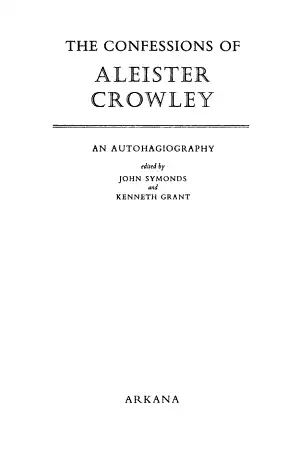Discover books similar to "The Book of the Law"

Aleister Crowley
The Book of the Law
3.86
"The Book of the Law" by Aleister Crowley is a seminal work in the field of occultism and Western esotericism. First published in 1904, the book is presented as the record of a series of automatic writings dictated to Crowley by a praeterhuman entity named Aiwass over the course of three days in Cairo, Egypt. The text is divided into three chapters, each of which is said to have been received by Crowley during a different hour of the day. The book's central teaching is the Law of Thelema, which emphasizes the individual's will as the guiding principle of their life. Thelema, which means "will" in Greek, is presented as the key to unlocking one's true potential and achieving spiritual enlightenment. The book also introduces the concept of the Holy Guardian Angel, a spiritual guide that is said to be uniquely attuned to each individual's needs and desires. Crowley's writing style in "The Book of the Law" is dense and often challenging, with the text being filled with obscure references and complex symbolism. However, the book's power and influence lie in its ability to inspire readers to question their assumptions about reality and to explore the depths of their own consciousness. Despite its controversial reputation, "The Book of the Law" has had a profound impact on modern occultism and has been translated into numerous languages. The book has also been the subject of much scholarly analysis and debate, with many experts viewing it as a seminal work in the field of Western esotericism. Overall, "The Book of the Law" is a challenging and thought-provoking work that offers a unique perspective on the nature of reality and the human experience. While it may not be accessible to all readers, those who are willing to engage with its ideas and symbolism will find it to be a rich and rewarding text...

